Britell talks with StarWars.com about his Andor score -- and his old hip-hop band.
Follow Cassian Andor on his journey to becoming the rebel hero we know from Rogue One as his story unfolds in Andor Season 2, now streaming only on Disney+. Check back regularly for episode guides, highlights, behind-the-scenes content, cast interviews, and more from Season 2 on StarWars.com!
Andor is a decidedly new take on Star Wars, and the same can be said of its music. Nicholas Britell, an Academy Award-nominated and Emmy Award-winning composer whose previous work includes the TV series Succession (2018-present), Moonlight (2016), and the The Big Short (2015), has created a score that’s less space-swashbuckling, more space-spy, for the story of Cassian Andor. Strings drone for stretches, low-volume beats remind us of ever-constant tension, and even when something good happens, dissonant tones seem to bring us back to earth. To mark today's release of the Andor: Vol. 1 soundtrack, StarWars.com spoke with Britell about the music of the series, discussing his approach to a darker vibe, using non-traditional instrumentation, and his college hip-hop band.
Update: The Andor Vol. 1 and Vol. 2 soundtracks are both available now.
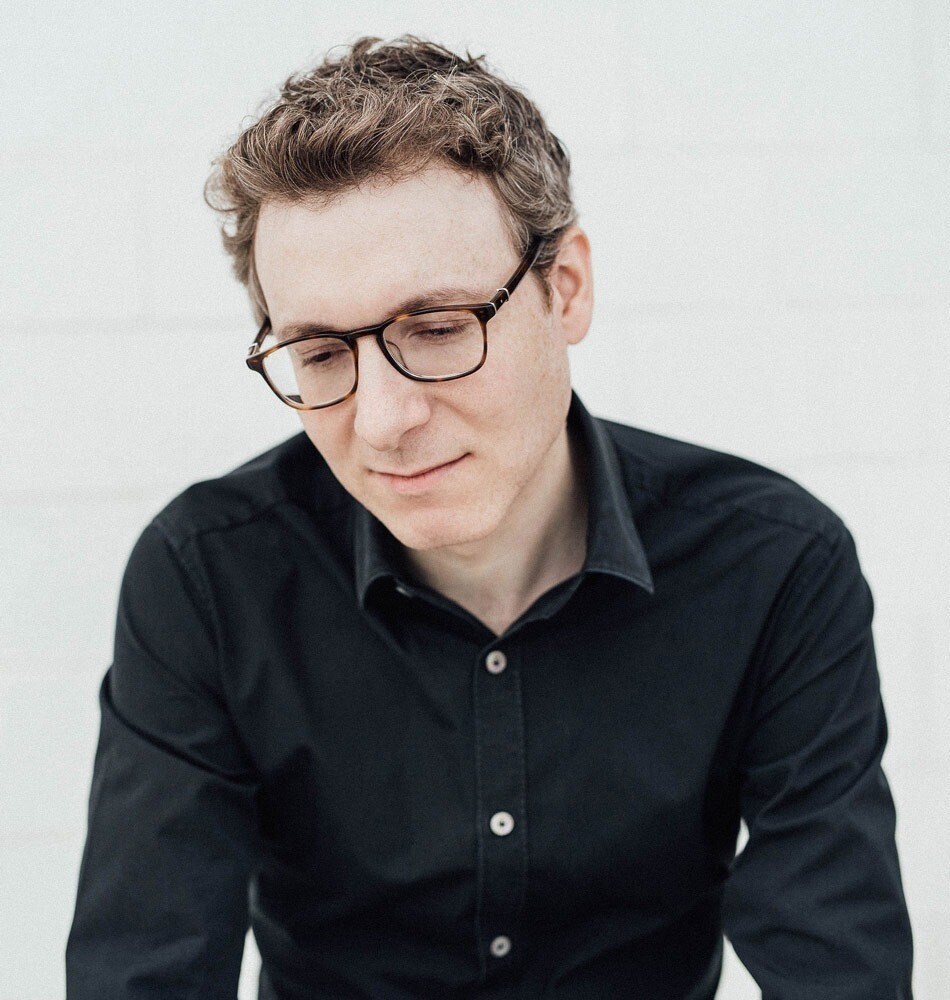
StarWars.com: The series is a really grounded take on Star Wars. As the composer, how much does that impact your work?
Nicholas Britell: It's a good question. I was always such a huge fan of [Andor showrunner] Tony [Gilroy]'s, for years as a writer and also as a director. Michael Clayton is one of my wife’s and my favorite movies. So I think the idea, from very early on, even before I joined, was that they were going to actually give me a lot of freedom to create a unique musical landscape. They really felt it was important to have, given the tone and, especially given how the show starts, there's a gritty, darker vibe to things. Tony and I talked about that. Tony felt very strongly that he really wanted it to have its own musical language, hopefully.
Now, of course, you know, I'm a huge Star Wars fan and as well, and I think for me it was important really to do maybe two things. I wanted it to have that sense of self, of its own feeling. But at the same time, my hope was, of course, that throughout there's still a sense of the spirit of the Star Wars universe. The Star Wars universe has such an amazing, timeless sense and feeling. And I think, hopefully, especially certain themes as we go, I wanted to feel like we were still in this world, you know what I mean? Even if it is a very distinct sound.
StarWars.com: Obviously with Star Wars, John Williams' music is so well known. Was it hard to go for this more somber tone and avoid the more romantic style that we associate with Star Wars?
Nicholas Britell: You know, it was interesting. I think because it was presented to me from the very beginning as like, ‘Let's really reimagine this,’ I think that gave me the confidence. And also, [Lucasfilm president] Kathy Kennedy and Tony were so supportive of that. They really encouraged that. It was never an issue of running into that direction and then saying, ‘Oh, I can't.’ You know, it was more just actually, really starting from the very beginning of, ‘What is Andor and what do we want to feel?’ And, you know, ‘What is the sense?’ I don't want to give any spoilers away, but there's certain on-camera music -- there's a lot of on-camera music in the series, as you know, a lot of elements where there score and music and sequences are happening at the same time on-camera. Some of those elements in particular connected to Maarva and Ferrix, those were places that I really started. ‘What is that feeling?’ And dealing with what was right in front of me there. You know, what is Ferrix? Who are these people? Who is Cassian? I think the starting place, interestingly, with some of these themes was very much that I wanted the music to have its own feeling of discovery. We don't really know where we are at the beginning of this. And Cassian himself, as we discover, he's learning who he is as well, throughout the series. There is a sense of discovery of self throughout this show. And so, I think the music, at the very beginning and like, even the first main title theme, for example, there's like, a question. There's a pulse, and then there's another, and it sort of grows, and you are learning what it is as it happens, and then it has a crescendo and then it cuts out.
So I think, in a way, there's almost a metaphor there for the show. This idea that we are learning, the characters are learning. It's something a little different. It's something new and the music is, hopefully, providing a sense of that sense of learning and discovery as well.
StarWars.com: I was looking at your body of work. I don't know that you've done sci-fi or space fantasy before.
Nicholas Britell: I have not. I've always wanted to.
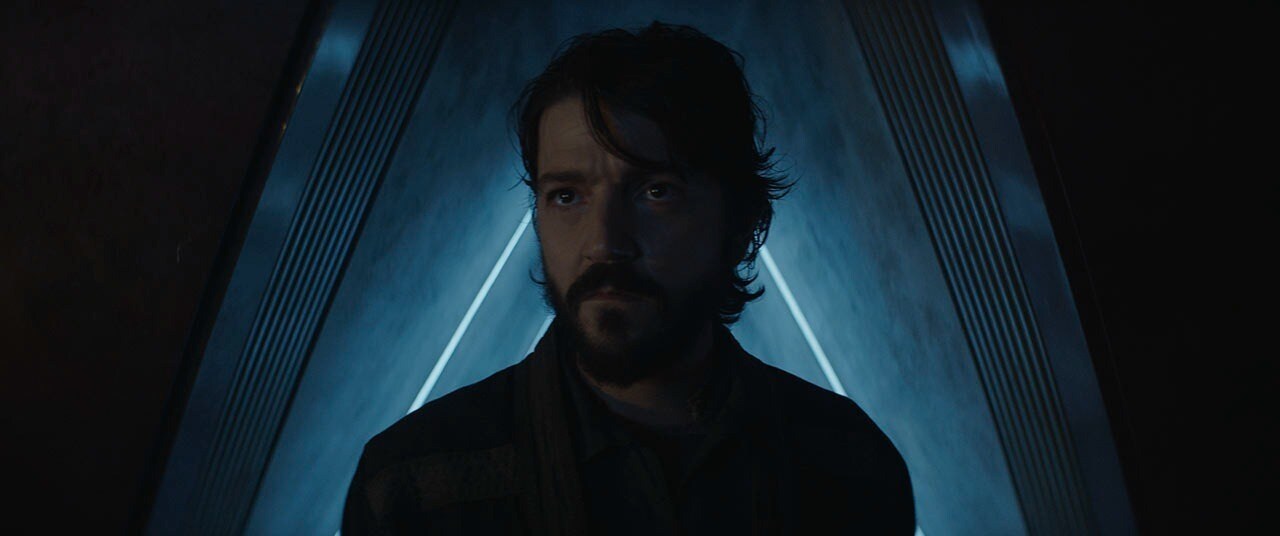
StarWars.com: What was it like, jumping into this?
Nicholas Britell: It was amazing. It was so exciting. Look, to be a composer and to get this type of an opportunity, it's humbling, it's exciting. It's everything. It's everything, and above all, I think, I have to say it again, just because it's so true, the support and the confidence and the care with which everyone approached this project, from Kathy Kennedy to Tony Gilroy, to the entire production crew, everyone was so supportive and wonderful to work with. It gives you this sense of possibilities, like, ‘We can really try stuff here.’ And that's a wonderful feeling, I think, certainly for a composer.
I incorporated, right from the very top of the show, analog synthesizers. There's a lot of created sounds. There's a lot of synthesizers, there's a lot of atmospheric elements I’ll bring in. In addition to a 50-piece string orchestra, brass, percussion. It gets very large scale, for sure. But also, it has the ability to, hopefully, be very inward and very dark and very particular as well.
StarWars.com: Yeah. I was going to ask about the instrumentation, because I thought I was hearing electronic sounds.
Nicholas Britell: For sure. Oh, yeah.
StarWars.com: Can you talk about bringing that blend [of instruments and techniques] into it?
Nicholas Britell: Yeah. Again, one of the fun things here was that chance to experiment. Tony is a musician as well. Tony was in a band years ago. I mean, Tony has a real sense of music. And so, it's wonderful working with someone who has that sense. Not that it’s about the language, because I actually think a lot of time, musical terminology isn't necessarily helpful in talking about music. But I think knowing your feelings is so important and knowing when you hear something, what do you feel? And Tony's very good at that. He's very good at, when he hears something, he clocks how he feels. And so if I say, ‘Oh, do you want something that feels kinda like this?’ Or, ‘Do you like this kind of a feeling?’ And he immediately will say, ‘Yeah, I dig that. Let's follow that.’ And so that was very helpful early on when I was trying to put the palette together, because at times, I thought it was very important that we do have the ability to go into rich strings. But at the same time, perhaps, as you'll hear, certainly in the beginning of the series, it's also really important that we have really close mic’d individual strings at times on the cellos, for example. Hopefully you hear the bow on the strings -- you hear the closeness of that. Because one word that Tony would use that I really felt a lot, especially when we're alone with Cassian at times, there's a sense of intimacy there. There’s a sense of contemplation. There's a sense of loneliness at times, for sure. And I think it's important that the music itself reflect those things. There are times where we go huge, where it's probably the biggest sound I've ever created. [Laughs.] But at the same time we also go really, really tiny and close. It’s really important to, hopefully, convey those feelings, and what Cassian is going through. Because he goes through a lot, as we know.
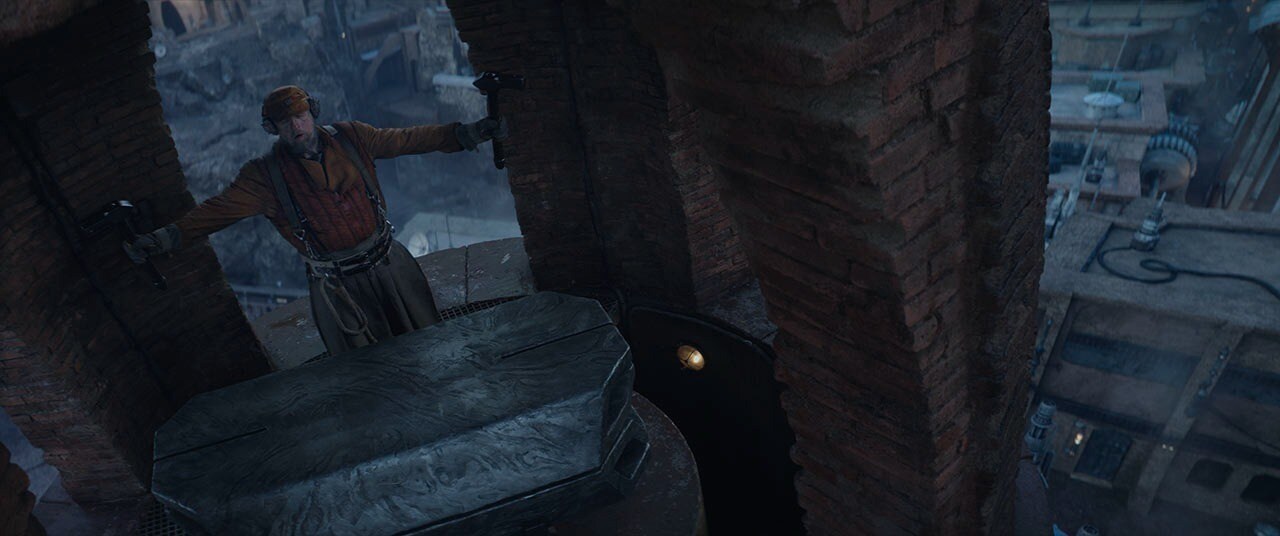
StarWars.com: I don't know if it you'd call it a motif, but something I hear throughout the show is just these pulsating rhythms.
Nicholas Britell: Yes. Totally.
StarWars.com: That serve to kind of ratchet up the tension, I think. Can you talk about developing that and knowing where and when to place it?
Nicholas Britell: Absolutely. There’s a sort of pulse motif that you hear right from the very top of the first opening title theme. There's a couple layers of them. There's one that's very low, that's almost like a signal kind of a pulse, you know? And then there's a higher pulse which comes in, which is a synth pulse. And those, oftentimes, presage some type of Cassian motif, I would say. Not always, but that's sort of a signal sometimes that this is about [Cassian]. Cassian has various motifs around him, but I always think of themes as being about relationships. I don't often think of themes as being like, if you see this, you hear this. I usually think about what's happening, what's the relationship of things, and maybe a theme connects things. Or when you hear something and then something new comes in play, you're like, ‘Oh, now we're connecting that new thing with this.’ It’s about dynamic connections.
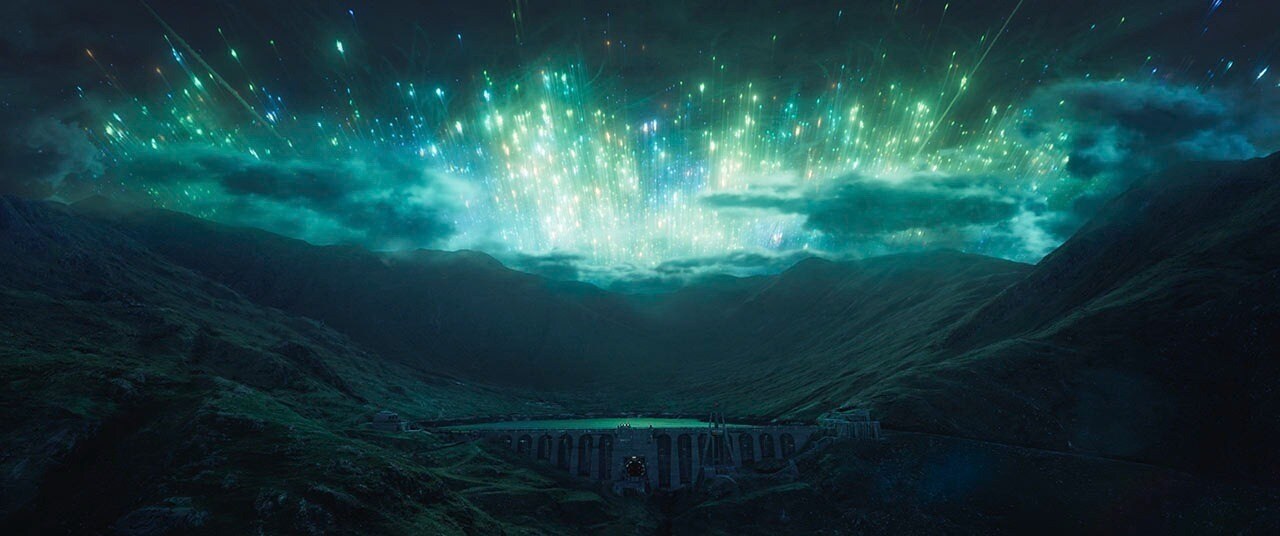
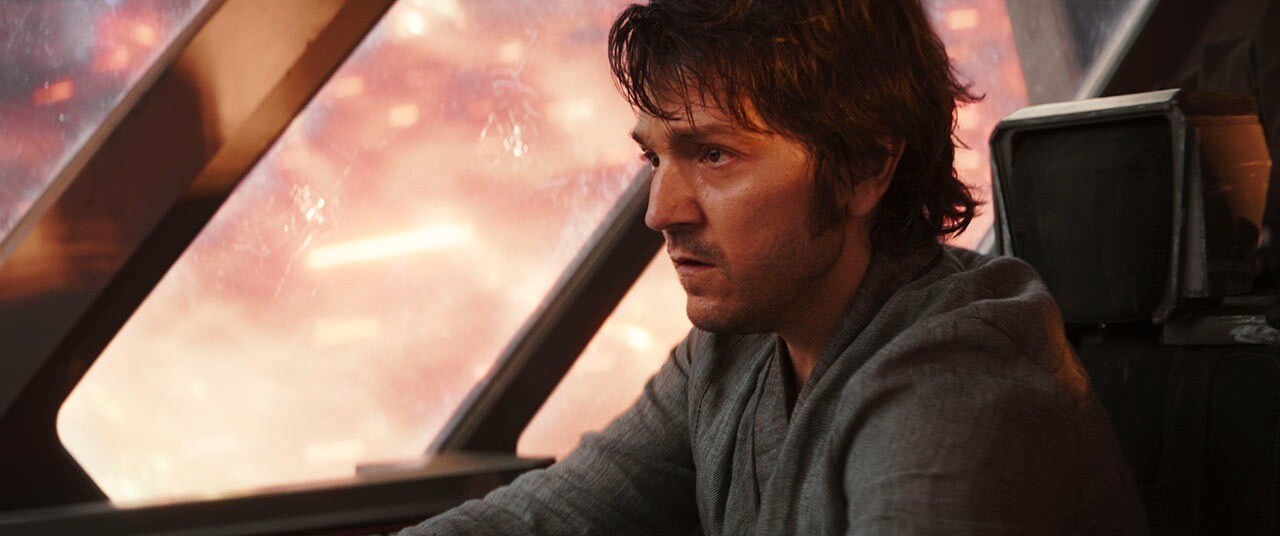
There are certain motifs that I think of as kind of about Andor the series itself. Cassian, for sure, but Andor as a kind of universal feeling, in a way. So the pulse sometimes implies a broader element like that. And then there's, obviously, real percussion at times. And then there are a huge variety of other themes, for sure. But yeah, that initial theme that you hear right at the very top of the first main title, for sure. I'll also add that all the main titles are different. The first main title sort of sets the stage a bit, but each main title is a variation on that theme. And each time as we go, it's related sometimes to what we've just experienced, and sometimes to what we're about to experience.
StarWars.com: So I checked your Wikipedia page. You're nine days older than me.
Nicholas Britell: Amazing.
StarWars.com: Happy soon-to-be birthday. [Note: Nicholas has since celebrated his birthday.]
Nicholas Britell: [Laughs.] Happy almost birthday. Right.
StarWars.com: So like me, you grew up in the era of grunge and rap and electronica.
Nicholas Britell: Sure, sure.
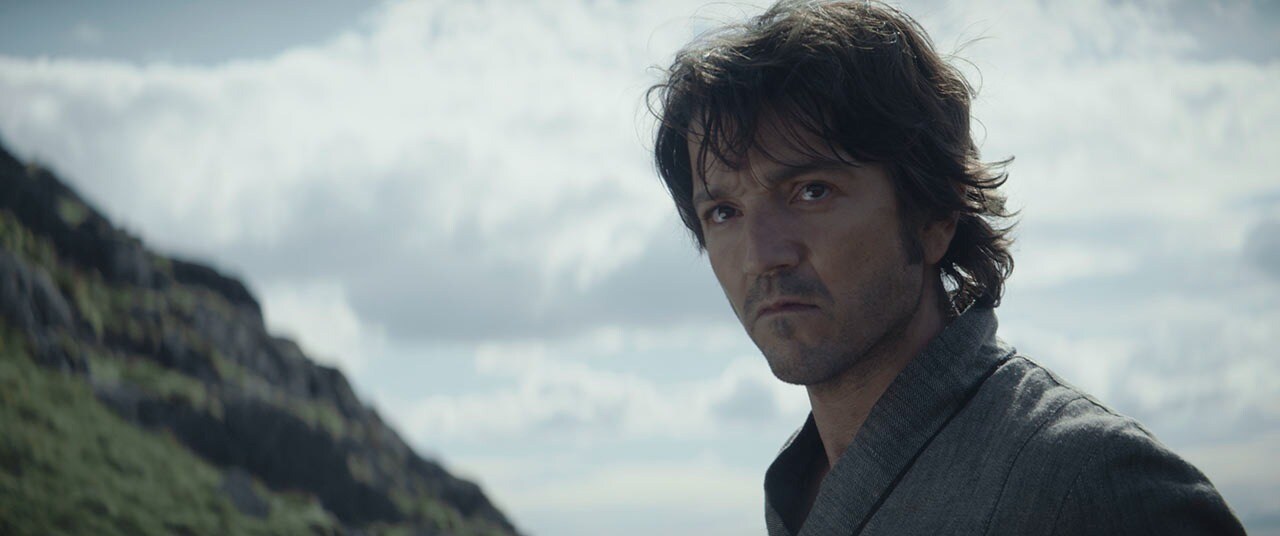
StarWars.com: To me, it's always interesting because as a film fan, our composer heroes did not grow up with that stuff. So how does that -- or I don't know if it does -- influence you and show up in your work?
Nicholas Britell: That's a great question. You know, I have a variety of musical periods in my life, in a sense. I grew up, as you did, in the 1980s. And I loved film, I loved music, I loved film music. I also was, for a very long period of time, on the track of being a concert pianist. So I was a pianist and classical music was very, very important to me, sort of foundationally. But then in high school I did a lot of jazz. And then actually in college, I was in a hip-hop band. It was really in college that, through my band, I wrote a lot of the music, and I played keyboards and synthesizers.
And so, interestingly, in college it was when I really started scoring films for friends of mine who were making short films, or I had one dear friend who was making a feature film in college, and then also making beats in my band and writing synthesizer lines and things like that. So for me, in a way, there was always kind of a fusion of these elements. You know, a classical musician, but also in a hip-hop band. So for whatever that's worth, a lot of my love of music is in some of those spheres. And I think we're all products of our times to some extent, right? Like, we absorb what we’re surrounded by. So I love lots of different types of music, and to me, I think that all of these sounds are really in service of feelings, ultimately. I don't think in terms of genres, I really don't. I think in terms of like, ‘What do those sounds mean to me?’ You know, what do they mean and, in combination, what do they do to us?
StarWars.com: You grew up in the ‘80s. What's your own history with Star Wars?
Nicholas Britell: I have very scant memories of this, but my parents told me that they took me to see Return of the Jedi in the theater. So I think that's probably my first actual, you know, trip to a Star Wars event. [Laughs.] But I watched, obsessively, Star Wars, Empire, and Return of the Jedi. I watched those obsessively as a kid and, obviously, have been just such a major fan of John Williams since as long as I can recall. I have a little brother and, I mean, it was a part of our life. I think it's hard to overstate how much Star Wars, I think, was a part of so many of our lives growing up. Just the fascination of it and certainly as a musician, and a music lover, the sound of it. So yeah, Star Wars occupies a very iconic place and a very, very special place, I think, for so many of us, but certainly for me. I don't think in my wildest dreams I ever would imagine that I would be somehow a part of this. [Laughs.] It's very humbling and very special and very emotional, to be able to get a chance to contribute in some way.
The Andor: Vol. 1 and Vol. 2 soundtracks are available now.

